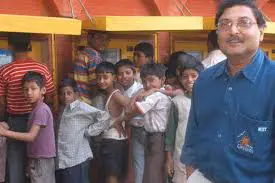Truly The Substance of Contentment by David Seagrave
Devereux was a self reliant bachelor who had retired from his position with Durcaster Borough Council. He lived in a charming period cottage with a huge garden built long before Miriamsfield was swallowed up in Greater Durcaster. He awoke to Phantom Limb Pain and recalled that it was the 40th anniversary of an accident when as a young man he had set off from Durcaster to Swineherdsford on a frosty February night and been hit bya drunken motorist. He had a hot bath and the pain abated He had to see about his broken kitchen window which faced the local primary school Read more…



